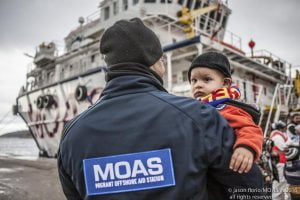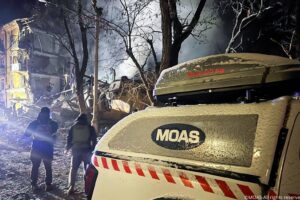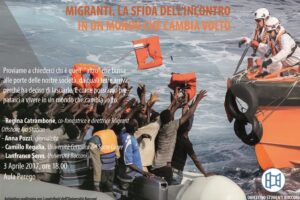Un minuto di silenzio.
Ho deciso di cominciare così il mio intervento al Festival Porti di Terra organizzato da Caritas Benevento che mi ha invitata a portare una testimonianza di impegno civile ed imprenditoriale a servizio di chi rischia di morire in mare.
Un minuto di silenzio per riflettere e ricordare le persone a bordo della Phoenix, ma soprattutto per chi non ha potuto toccare terra: ennesima vittima di un mare che si trasforma in un cimitero.
Come successo tante altre volte, fisicamente prendevo parte a questo festival ma il mio cuore era sulla Phoenix.
Emotivamente ero in mare, accanto a chi era stato appena salvato, aspettando di arrivare nella “terra promessa”, e ho chiesto di pregare per chi non aveva potuto realizzare il sogno di salvezza.
Gli eventi del 24 Maggio, oltre ad aver registrato un nuovo record tragico dopo quello precedente del weekend di pasqua, hanno scosso profondamente tutto il team MOAS che quotidianamente si impegna per salvare più vite possibile.
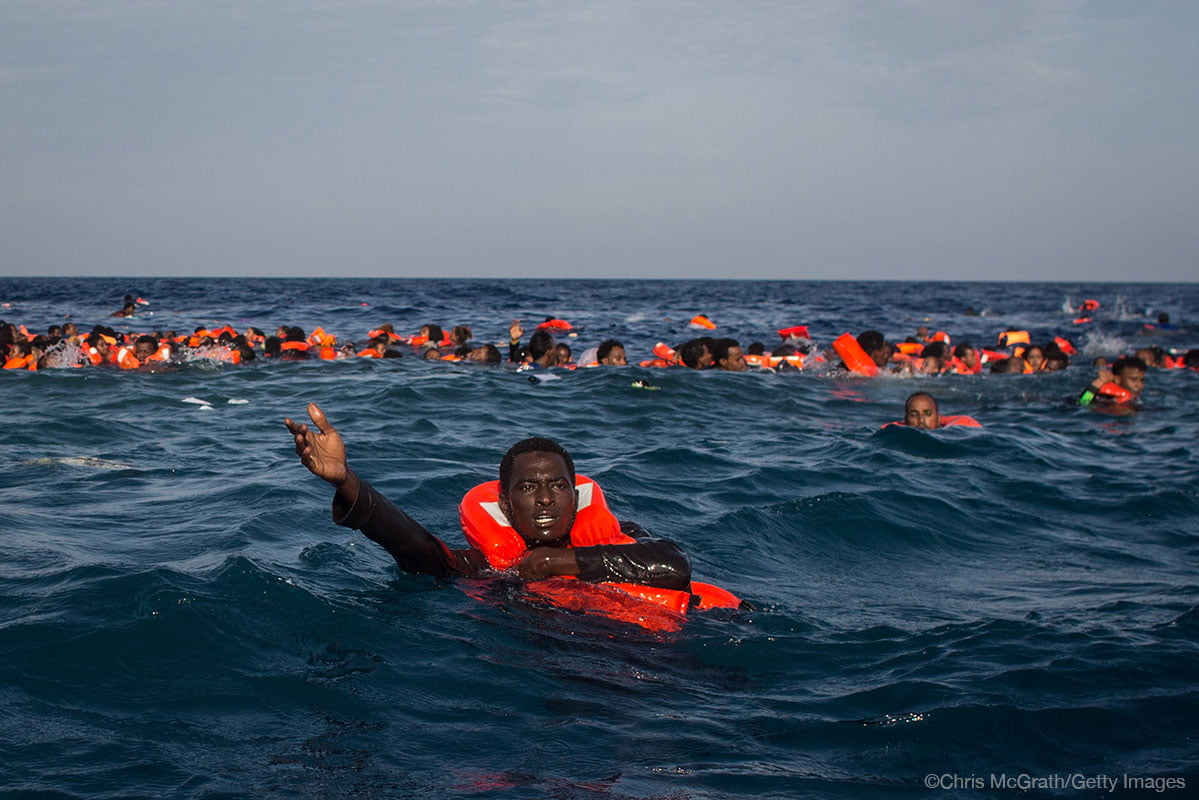
In quel silenzio iniziale, quindi, non c’erano solo le preghiere e il dolore, c’era anche la frustrazione per dover continuare ad assistere a queste tragedie annunciate. Eppure, il fatto stesso di essere lì insieme alla famiglia Caritas mi dava speranza: ognuno dei presenti ha raccontato il proprio impegno verso chi fugge da crisi e persecuzioni, intorno a noi c’erano i protagonisti in carne e ossa di processi di integrazione virtuosi che raccontano un altro mondo possibile.
Oliviero Forti ha nuovamente ribadito la necessità di lungimiranza nel costruire vie alternative ai viaggi della morte e, rappresentando MOAS che da quasi un anno lavora costantemente per l’apertura di corridoi umanitari, non potevo che essere d’accordo.
Siamo stati felici di ricevere anche il sostegno del Santo Padre che ha benedetto e incoraggiato il dibattito di questi “porti di terra”, mentre sono rimasta profondamente commossa dalle parole di Mons. Galantino. Nel suo intervento ha parlato della differenza fra commozione e comprensione: la prima come emozione momentanea, la seconda come percorso più complesso ed articolato in cui l’incontro con l’altro e la capacità di ascoltare giocano un ruolo fondamentale.
Fondamentale anche, all’indomani dell’attacco terroristico a Manchester, è stato l’intervento dell’imam Cozzolino nel cui messaggio di fratellanza, protezione della vita umana e misericordia mi sono molto rivista. A dimostrazione che la religione unisce, ma sono gli uomini a dividere.
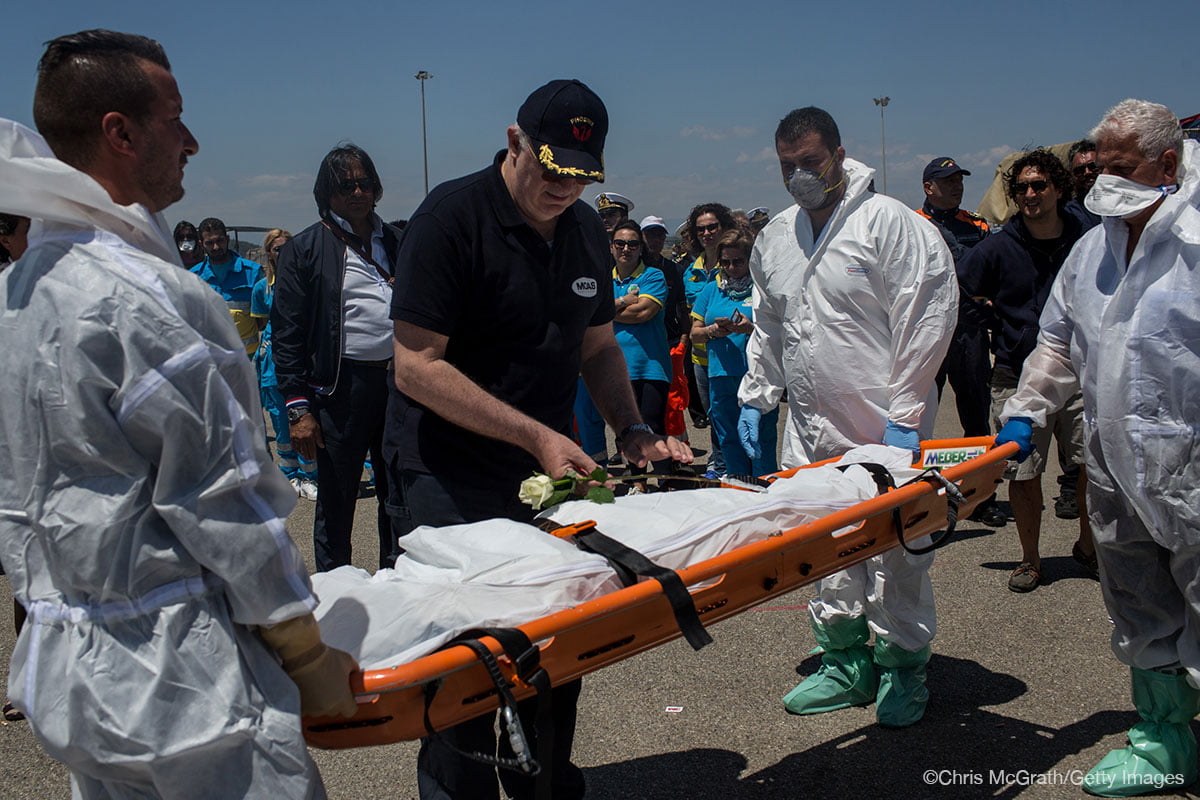
Affrontare la migrazione tramite stereotipi -siano essi positivi o negativi- non aiuta in alcun modo nel percorso di comprensione. Per comprendere occorre osservare, ascoltare, toccare con mano cosa voglia dire essere migrante. Proprio per questo dopo ogni missione MOAS, racconto le storie che ho ascoltato a bordo: donne, uomini, adolescenti la cui voce rimarrebbe inascoltata parlano attraverso chiunque voglia ascoltarli e le loro esperienze non sono state vane.
Il 12 Maggio ero stata al Sabir, a Siracusa, un porto di mare. Il 26 Maggio, invece, ero in un porto di terra a dimostrazione di come l’accoglienza non dipenda da fattori geografici, ma dalle persone che la mettono in pratica ad ogni latitudine.
E, come ribadito durante il mio intervento, io starò sempre dalla parte delle persone. Persone che migrano e persone che accolgono.
Un sunto dell’evento potete trovarlo qui
[donate_button_blog]

